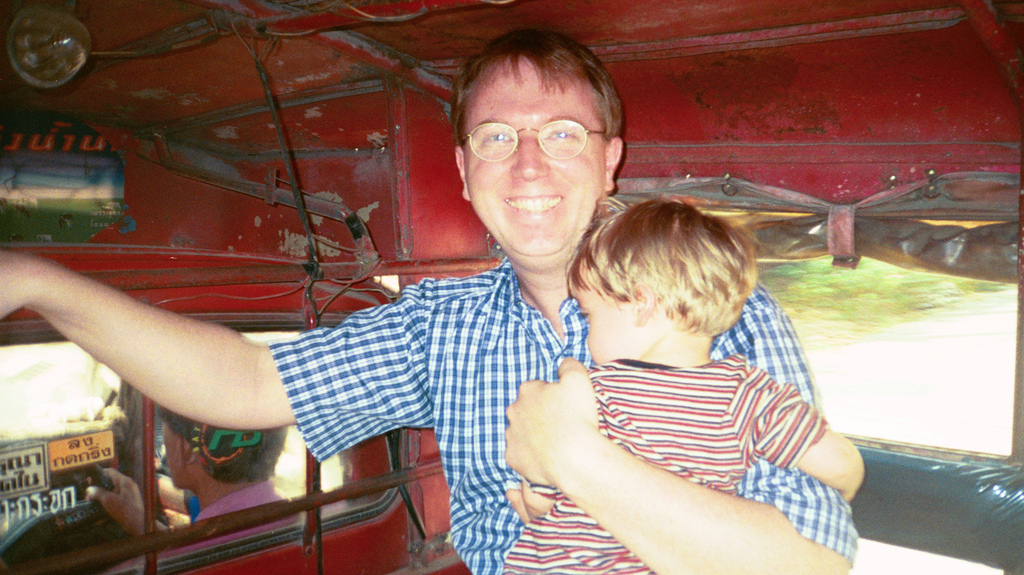Eight years ago, in the winter of 2002, Catherine, Oliver and I spent two weeks in Thailand. The nominal purpose of our visit was to visit my friend Harold Stephens, but we got to see a fair bit of the country too, and spent a few days in Chiang Mai in the north.
The backbone of the public transit system in Chiang Mai are the songtaos. These are covered pickup trucks with wooden benches on either side, and if you want to get around the city you’ll inevitably end up in one. As did we:

When I think of that time, and look at the picture, the “purchase the most secure child restraint on the market” version of me cringes: there we are speeding down the streets of Chiang Mai with nothing holding Oliver in that my one-handed grip (I had to hold on to the truck with my other hand to avoid falling out).
It seems, well, crazy.
Except at the time, it didn’t. It seemed completely rational.
I’m not sure how to explain this.
Without advocating that we throw away common sense while traveling, it does seem to suggest that travel can take us into unexpected situations and make us do unexpected things. Different things. Things that at home don’t make any sense at all. Things that, when we get home and look back, make even less sense.
Of course this would be a different story if Oliver had fallen out of my arms and under a tuk-tuk.
But he didn’t. And we survived. And the trip, in many small ways, changed our life for the better.
Somewhere buried in there is a lesson to be learned about the virtues of travel.
 I am
I am
Comments
I guess when we assess risk
I guess when we assess risk we pick our bench mark unconsciously and according to what we see as the context of the activity in question. Looking back at the photo as an instance of “how I drive Oliver around” makes it look extraordinarily dangerous. But at the time you were surrounded by ostensibly reasonable people (Thais and other tourists) casually doing the same thing—it would have been extraordinary for you to behave otherwise. We pretend our ethics are simple and absolute, but we have sympathy for murder and even cannibalism in context. I guess it’s good we do pretend in most ways, or we wouldn’t do it.
(But the fact that we do
(But the fact that we do pretend may be that lesson you postulated about the virtues of travel)
Add new comment